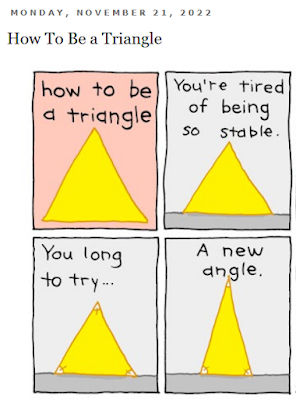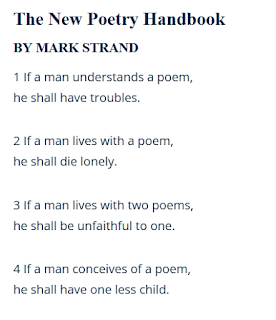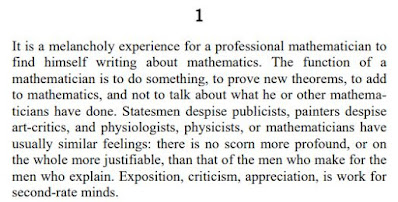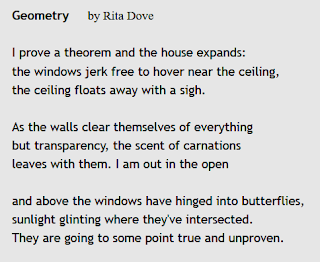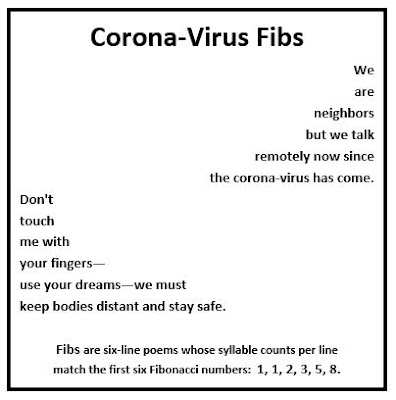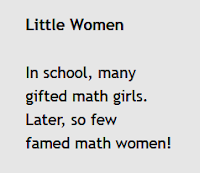During his time as Poet Laureate of the United States, Billy Collins created Poetry 180 -- a project designed to encourage students to engage with poetry but providing a poem (accessible for high school students) for each of the 180 days of the school year. Each week in my email, I get a message with links to five of these poems; one of the recent ones (poem 72, given below) has reminded me about the importance of teachers in my life -- teachers of poetry AND teachers of mathematics -- in shaping my learning and my personhood. Here is "Gratitude to Old Teachers" by Robert Bly:
Poem 072: Gratitude to Old Teachers by Robert Bly
When we stride or stroll across the frozen lake,
We place our feet where they have never been.
We walk upon the unwalked. But we are uneasy.
Who is down there but our old teachers?
Water that once could take no human weight—
We were students then—holds up our feet,
And goes on ahead of us for a mile.
Beneath us the teachers, and around us the stillness.
Bly's poem is from his collection, Eating the Honey of Words, (HarperCollins, NY, 1999). Its presentation in Poetry 180 may be found at this link.
